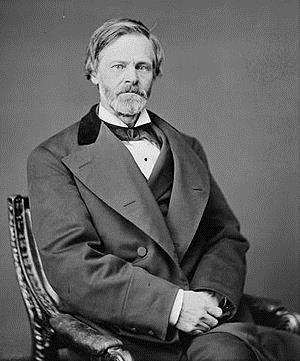The Sherman Antitrust Act (Sherman Act,26 Stat. 209, 15 U.S.C. §§ 1–7) is a landmark federal statute in the history of United States antitrust law (or "competition law") passed by Congress in 1890. It prohibits certain business activities that federal government regulators deem to be anticompetitive, and requires the federal government to investigate and pursue trusts.It has since, more broadly, been used to oppose the combination of entities that could potentially harm competition, such as monopolies or cartels.According to its authors, it was not intended to impact market gains obtained by honest means, by benefiting the consumers more than the competitors. Senator George Hoar of Massachusetts, another author of the Sherman act, said the following:"... [a person] who merely by superior skill and intelligence...got the whole business because nobody could do it as well as he could was not a monopolist..(but was if) it involved something like the use of means which made it impossible for other persons to engage in fair competition."Its reference to trusts today is anachronistic. At the time of its passage, the trust was synonymous with monopolistic practice, because the trust was a popular way for monopolists to hold their businesses, and a way for cartel participants to create enforceable agreements.In 1879, C. T. Dodd, an attorney for the Standard Oil Company of Ohio, devised a new type of trust agreement to overcome prohibitions in Ohio against corporations owning stock in other corporations. A trust is an otherwise neutral, centuries-old form of a contract whereby one party entrusts its property to a second party. The property is then used to benefit the first party.The law attempts to prevent the artificial raising of prices by restriction of trade or supply. In other words, innocent monopoly, or monopoly achieved solely by merit, is perfectly legal, but acts by a monopolist to artificially preserve his status, or nefarious dealings to create a monopoly, are not. Put another way, it has sometimes been said that the purpose of the Sherman Act is not to protect competitors, but rather to protect competition and the competitive landscape. As explained by the U.S. Supreme Court in Spectrum Sports, Inc. v. McQuillan 506 U.S. 447 (1993),"The purpose of the [Sherman] Act is not to protect businesses from the working of the market; it is to protect the public from the failure of the market. The law directs itself not against conduct which is competitive, even severely so, but against conduct which unfairly tends to destroy competition itself. This focus of U.S. competition law, on protection of competition rather than competitors, is not necessarily the only possible focus or purpose of competition law. For example, it has also been said that competition law in the European Union (EU) tends to protect the competitors in the marketplace, even at the expense of market efficiencies and consumers."




Comentar
0